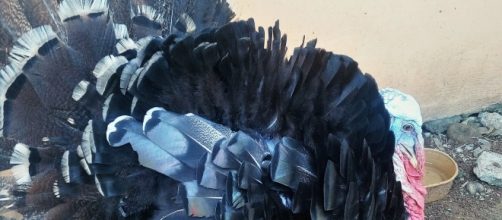The first major outbreak of avian influenza in the Philippines was reported this week, sending government authorities scrambling to limit its spread while reassuring the public that it is “unlikely” the disease can infect humans.
Six poultry farms around the town of San Luis, Pampanga on the Philippines’ main island of Luzon were identified as the source of the outbreak of the H5 strain of the bird flu virus. Although officials from the country’s Agriculture and Health departments said it did not appear that the virus could pass from infected birds to humans, they disclosed that samples had been sent to Australia for testing to see if the virus was the H5N6 variety that can infect people, according to a report in the Philippine Daily Inquirer.
Agriculture Secretary Emmanuel Piñol told local media that he believed the source of the infection was either wild birds, or more likely, Peking ducks smuggled from China through the nearby port of Subic Bay. Smuggling is rampant in the poorly-secured island nation, with an estimated $20 billion to $25 billion in illicit goods entering the country annually, according to an often-cited 2011 analysis by the US-based think tank Global Financial Integrity.
State of emergency
The outbreak is the first serious outbreak of bird flu in the Philippines despite the disease’s frequent appearance in neighboring countries over the past decade. It reportedly began in April on a duck and quail farm, and then spread to neighboring chicken farms that produce mostly eggs for markets in Central Luzon and Metro Manila, some 100 kilometers (60 miles) away.
CNN Philippines reported that authorities were furious at the affected farmers for not reporting the initial appearance of the disease, and intended to question them once the situation was under control. To stop the infection from spreading to other poultry farms, the government placed the entire province of Pampanga under a state of emergency and imposed a quarantine around the town of San Luis to prevent any poultry products from entering or leaving the area. The Department of Agriculture also set out to cull about 400,000 chickens and ducks to stop the disease from spreading, but was having trouble finishing the job due to a lack of manpower, according to a report in the Philippine Star.
In addition to those measures, Agriculture Secretary Piñol also ordered a halt to shipments of poultry from Luzon to other parts of the country.
In an interview with the Philippine Star, he admitted the move would likely have a serious impact on food supplies, particularly since demand for eggs and poultry increases in the last four months of the year.
The order presumably also applied to exports, although it was not specifically stated. One of the Philippines’ biggest customers for poultry products is taking no chances, however; on Monday, Gulf News reported that officials in the United Arab Emirates imposed import controls to block poultry shipments from the Philippines.
Disaster waiting to happen?
Given the nearly four-month delay in reporting the bird flu outbreak, there is cause for concern that this week’s hastily imposed measures to stop the disease from reaching other areas of the Philippines or even other countries might be too little, too late.
Most poultry products in the Philippines are sold in so-called “wet markets,” where sanitation is poor, and where people are easily exposed to potentially contaminated live or raw poultry and eggs.
The risk of bird flu is not the only concern. In April, The Manila Times reported on a study by the University of the Philippines that revealed that more than three-fourths of the fresh poultry sold in Metro Manila, both in “wet markets” and conventional grocery stores, is contaminated with a drug-resistant strain of Campylobacter bacteria. The bacteria can cause acute gastroenteritis, a disease characterized by severe diarrhea; it is responsible for up to 2.5 million deaths a year, mainly among children in developing countries.
Compounding the challenge for health officials, fighting cocks, chickens, ducks, and even turkeys are commonly kept as pets or as future meals by Filipinos, even in urban areas, making tracking down and eliminating all potentially infected birds difficult -- if not impossible.
For now, the Philippine government is advising residents and tourists to avoid exposure to live poultry and poultry products in markets or on farms, and to avoid contact with wild birds. The advice is similar to that given to travelers by the US Centers for Disease Control, although so far, no foreign governments have issued a specific warning regarding the latest outbreak in the Philippines.


